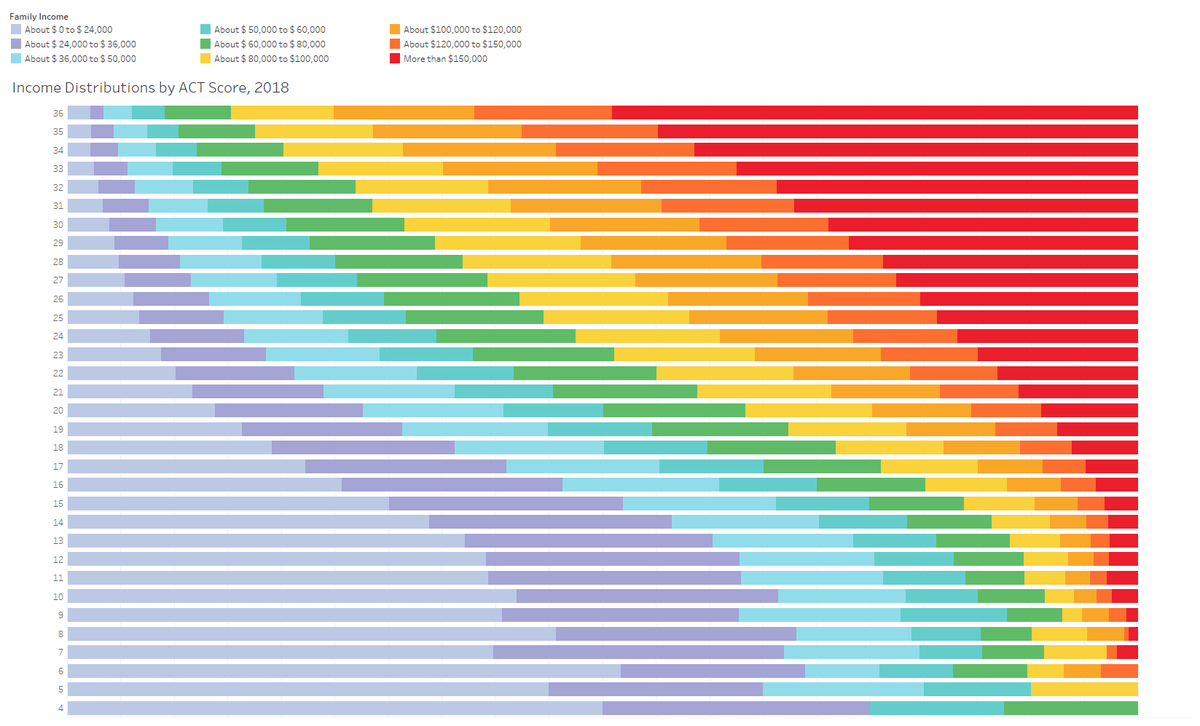
Thread: Three big questions on my TL today, based on a tweet by @adamingersoll of @CompassEduGroup that I RTed this moring:
1) Should you test?
2) If you test, should you send test scores?
3) Will colleges go back to tests?
1) Should you test?
2) If you test, should you send test scores?
3) Will colleges go back to tests?
#1) The tests are pretty worthless, but if you're a good tester, or you're applying to a highly rejective (H/T @akilbello ) or you can pay for expensive prep or you're seriously motivated to do free prep, go ahead. Just having a test can't hurt you.
Of course, there are heavy opportunity costs to prepping for worthless tests. You're 17, and you have better things to do (at least I hope you do) but make yourself happy. Test if you want or your ego demands it.
#2) Is hard to answer. @jennthetutor has a list of 15 questions you should ask test-optional colleges. Jenn is a lawyer, and I wouldn't want to be on the witness stand with her asking me these if I were at a university that wasn't clear about this stuff. jennthetutor.com/blog/testoptio…
But I'm reminded of a question I once got at a New England prep school. A young woman said she really wanted to take a pottery class, but she'd have to miss another AP course, and she was worried that it would hurt her chances at some colleges.
I asked her why she'd want to go to a college that didn't value her choice to pursue something she really thought she would love.
Once you get past the name brand, consider whether the college values match yours.
Once you get past the name brand, consider whether the college values match yours.
Whether you have tests in your file or not, you're the same person with the same ability to succeed. If that college values you more because of a severely flawed test that doesn't tell anyone much of anything important, well, what does that tell you?
I like this passage from TS Eliot's "East Coker." Eliot was not a great human being, to be sure, but he wrote well. davidgorman.com/4quartets/2-co… 

The key is throwing off the assumptions you've been carrying around for a long time. Quit worrying about the effort you put into the admissions process, and start worrying about the effort you'll put into your education. I call this The Kardashian Effect. jonboeckenstedt.net/2012/06/19/col…
#3) Is more interesting. There are universities that love tests, because high test scores and selectivity are really the only things they have to say about themselves (and for some people, that's enough.)
The Compass article suggests that many colleges will return to tests.
The Compass article suggests that many colleges will return to tests.
Of course, that's their hope. They're a business, and among the test prep businesses out there, they have perhaps the most level-headed, straight-shooting, we-know-what-tests-are approach I've seen.
So they can be forgiven their optimism, I think.
So they can be forgiven their optimism, I think.
But the public universities in California seem to be having some serious success with eliminating tests all together. If California's publics stay test-free, the world might change. Why? Because California is a major exporter of students.
I looked at 2018 data (the last normal year) to see which colleges in America were reliant on California students. This view shows how many colleges outside California have the state in their top five feeders.
public.tableau.com/app/profile/jo…
public.tableau.com/app/profile/jo…

You can interact with that (on a desktop or laptop is best) and use the filter. These are the colleges with Cali in the top three. 

If applying to those places becomes an undue burden for students from California, guess what?
You know what. For as much as people think colleges are in control, large numbers of 17-year-olds not applying will get someone's attention pretty quick.
You know what. For as much as people think colleges are in control, large numbers of 17-year-olds not applying will get someone's attention pretty quick.
It's no secret I don't like standardized admissions tests, for a lot of reasons. They're an anachronism, a holdover from times when the wealthy and privileged thought only the wealthy and privileged were intelligent enough for university, with a few notable exceptions.
But mostly, they're a national test when we don't have a national curriculum. Say that to yourself three times while clicking your heels together, and I bet you'll find the clarity you seek without need for any more reasons.
Seniors, you've been through a lot, and every admissions officer who was once 17 feels bad for the things you've missed. Most of us are in this business because we like high school students.
If an admissions office is giving off a different vibe, think about what it says.
If an admissions office is giving off a different vibe, think about what it says.
Blaze your own path. Chart your own course. Make the call, and realize you'll never know whether another course would have led to another outcome.
You. Will. Never. Know. This is also good training for adulthood.
You. Will. Never. Know. This is also good training for adulthood.
Oh, and #EMTalk
• • •
Missing some Tweet in this thread? You can try to
force a refresh









